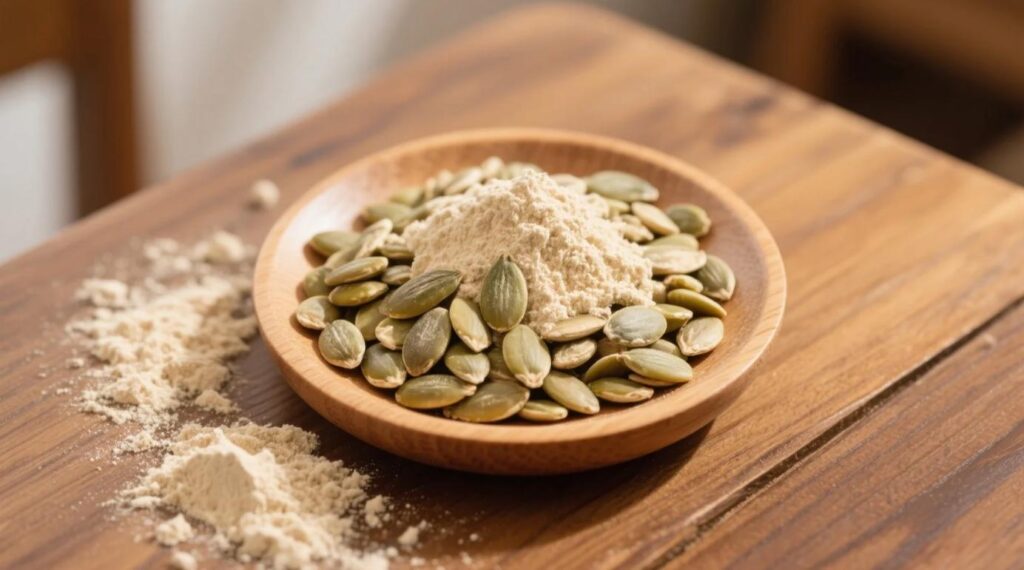Move over, whey and pea protein—there’s a new plant-based player in town. Organic pumpkin seed protein powder has surged in popularity among vegans, athletes, and health enthusiasts. But as you blend it into smoothies or bake it into energy bars, one question lingers: Is pumpkin protein actually a complete protein? Let’s crack the science and separate fact from fiction.
What Makes a Protein “Complete”?
A “complete protein” contains all 9 essential amino acids—the building blocks your body can’t make on its own. Animal proteins (like eggs or meat) typically check this box, while most plant proteins fall short in 1–2 amino acids.
Spoiler: Pumpkin seed protein is a complete protein… but with a catch.
The Amino Acid Profile of Pumpkin Seed Protein
| Amino Acid | Role | Pumpkin Seed Content (per 30g) |
|---|---|---|
| Lysine | Muscle repair, collagen production | 1,250mg (85% DV) |
| Leucine | Muscle growth, recovery | 1,800mg (90% DV) |
| Methionine | Detox, skin health | 450mg (70% DV) |
| Tryptophan | Mood, sleep regulation | 300mg (110% DV) |
The Catch: While pumpkin seeds technically have all 9 essentials, lysine and methionine levels are lower than animal proteins. For optimal muscle synthesis, pair pumpkin protein with lysine-rich foods like legumes or quinoa.
Why Choose Organic Pumpkin Seed Protein?
- Digestive Ease: Unlike gritty pea protein, pumpkin seed powder blends smoothly with no bloating.
- Magnesium Boost: 30g provides 40% DV magnesium—key for sleep and stress relief.
- Zinc for Immunity: 20% DV zinc per serving, crucial for fighting off bugs.
- Sustainable & Clean: Organic farming avoids pesticides (like chlorpyrifos) common in conventional seeds.
Who’s It Best For?
- Plant-Based Athletes: Mix with rice protein for a complete amino boost.
- Hormone-Balancing Diets: Zinc supports thyroid and reproductive health.
- Eco-Conscious Consumers: Pumpkin plants require 70% less water than almonds.
How to Use It
- Post-Workout Shake: Blend 1 scoop with banana and almond milk.
- Savory Twist: Stir into soups or hummus for a nutty, earthy flavor.
- Baking Buddy: Replace 25% flour in muffins for added protein.
Organic Matters
Non-organic pumpkin seeds often carry pesticide residues. Certified organic powder ensures:
✅ No synthetic chemicals (linked to endocrine disruption).
✅ Cold-Processing: Retains heat-sensitive nutrients like vitamin E.
✅ Regenerative Farming: Supports soil health and biodiversity.
Yes, pumpkin seed protein is a complete protein—but think of it as a “base layer” rather than a solo act. Pair it with complementary plant proteins or enjoy it as part of a varied diet. With its rich nutrient profile and eco-edge, organic pumpkin seed powder is a smart addition to your pantry… just don’t ditch the lentils!
Recommended Product
Organic Pumpkin Seed Protein Powder
Organic pumpkin seed protein powder offers ≥60% protein with unique sleep support, prostate health, and…

